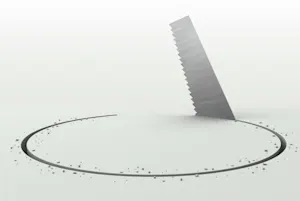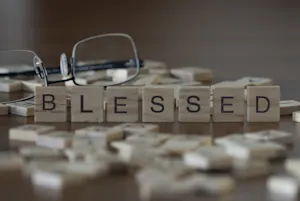What Makes This Word Tick
"Contemporary" is such a lively word, buzzing with the idea of the here and now. It speaks to what's current, what's in vogue, and what's happening right before our eyes. Yet, it also has this marvelous dual role—denoting things that exist at the same time, adding a layer of complexity that tickles the intellect.
If Contemporary Were a Person…
Ah, if "contemporary" strolled into a room, they'd be that impeccably dressed person whose style somehow perfectly blends the latest trends with timeless classics. They'd have a curious mind, always ready for a lively debate on today’s issues, and they'd be the one urging everyone to seize the moment.
How This Word Has Changed Over Time
While "contemporary" still encompasses the notion of coexistent times, it has somewhat shifted focus over the years to spotlight current trends and modernity. In earlier usages, it was more about simultaneous existence, whether in fashion, music, or timelines, gradually evolving to mean cutting-edge and present-day in popular discourse.
Old Sayings and Proverbs That Use Contemporary
You'd be hard-pressed to find traditional proverbs sporting "contemporary," but one might think of adapting old maxims like "strike while the iron is hot" into something more, well, contemporary in spirit—like "act with the times."
Surprising Facts About Contemporary
Did you know the word "contemporary" can be a bit of a chameleon? It's used in vastly different contexts, from architecture to art, where it may imply innovation, and in history, where it's about events unfolding in parallel times. It's a wonderful example of how one word can stitch together diverse ideas.
Out and About With This Word
"Contemporary" really gets around! You'll find it gracing the world of art galleries, where it stands for modern creations and trends. Colleges and universities often have contemporary programs, engaging students with current events and forward-thinking curricula. It's the darling of the cultural world, always keeping us on our toes.
Pop Culture Moments Where Contemporary Was Used
In pop culture, "contemporary" often describes a fusion of styles, like in dance shows where contemporary dance mesmerizes audiences with its blend of classical technique and modern expression. It also pops up in music awards that celebrate contemporary hits—songs capturing the zeitgeist of the time.
The Word in Literature
Literature has a cozy nook for "contemporary," especially when discussing genres that reflect modern themes and settings. Contemporary literature often grapples with present-day issues and frequently appears on bookshelves labeled to signify stories situated in the here and now. Think of authors who capture the essence of life today in their narratives.
Moments in History with Contemporary
Picture the Roaring Twenties, a whirlwind of change and modernity—it was very much a "contemporary" era as it embraced the new while existing alongside the remnants of the past. Similarly, the Renaissance, despite its historical context, carried a contemporary spirit by redefining what was then the current understanding of art and science.
This Word Around the World
Globally, "contemporary" often translates with slight variations that capture local nuances. For instance, in French, "contemporain" might evoke the arts, whereas in German, "zeitgenössisch" underscores things in the present age, directly linking to the times—literally translating as "of the same time."
Where Does It Come From?
The word "contemporary" finds its roots in the Latin "contemporarius," a fusion of "con," meaning "with," and "tempus," meaning "time." It has beautifully managed to preserve this essence through centuries, unfurling its branches into many cultural and intellectual arenas.
How People Misuse This Word
People sometimes trip over "contemporary" when they use it interchangeably with "modern," though they're not precisely the same. "Contemporary" refers specifically to things occurring at the same time, whereas "modern" can describe a period or style not necessarily linked to current times.
Words It’s Often Confused With
Modern: Often confused due to its focus on the present, but "modern" relates to a stylized period.
Concurrent: Shares the synonym of simultaneous but lacks the connotation of current trends.
Newfangled: Suggests fascination with the new, but lacks the parallel existence angle "contemporary" has.
Additional Synonyms and Antonyms
Synonyms for "contemporary" include "current," "modern," and "present-day," each offering a slightly different nuance. Antonyms such as "outdated," "antiquated," and "obsolete" contrast with its forward-thinking vibes, painting a picture of bygone eras.
Want to Try It Out in a Sentence?
Sure thing! How about this: "The museum’s new exhibit offers a breathtaking display of contemporary art, capturing the restless energy of today's creative minds."
















